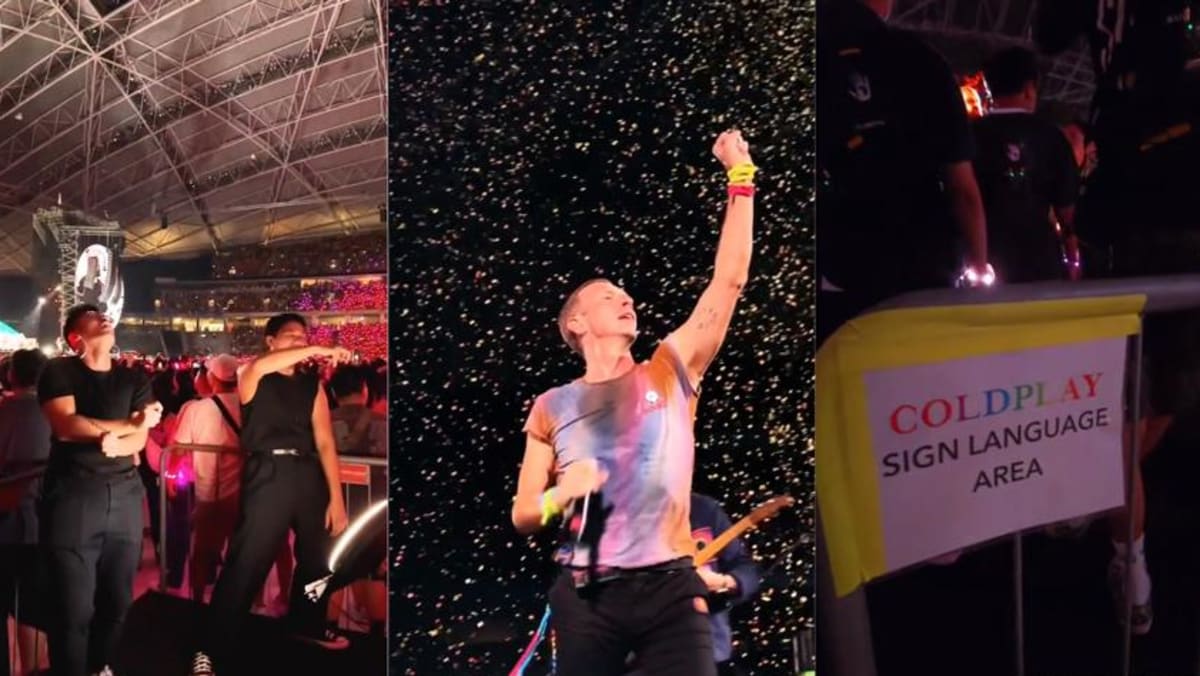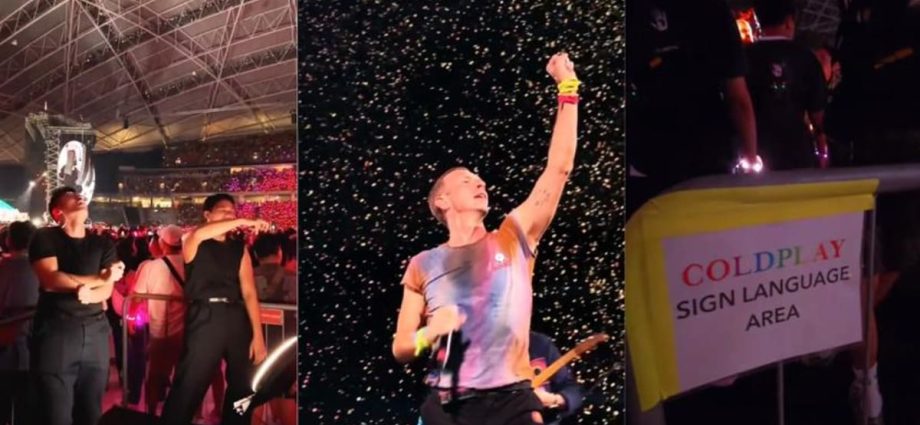
NO LONGER TONE DEAF
Many concert organisers have explored assistive technologies that provide opportunities for people to realise the full potential of their live music experience. For instance, vibrating vests and floors, and wearable sensors can enable full-body listening in a never-seen-before way.
Noise-cancelling headphones can be provided to those who need it. And soon enough, it may also be possible to explore Bluetooth technologies like Auracast, which streams audio directly to cochlear implant sound processors to enhance the concert experience for recipients. No longer relegated to producing sound at a pre-fixed volume, newer models of cochlear implants also contain adjustable settings that allow individuals to adapt to the sound profiles of their surroundings.
More noticeably, concert organisers are starting to make it a practice to hire sign language interpreters that can help deliver the same high many fans get at concerts. There are nuances to navigate here.
First, because Singapore Sign Language (SgSL) is used in the deaf community here, local interpreters are needed for the job as foreign interpreters would unlikely have the fluency to interpret songs in SgSL.
Second, there has not been much demand for song interpreting in Singapore. In interviews after the Coldplay concerts, the interpreters said that they conducted through research to come up with their own ways of offering vivid visual interpretations to convey the metaphorical meanings of the lyrics effectively.
Interpreting a song can be a tiring process as song interpreters must use their hands, legs and facial expressions to express the mood and tone of each song. They must figure out a way to preserve their energy throughout the duration of the concert and yet interpret not only the song lyrics, but also the instruments used in the background music.
But, that is not all. While live music is important, the truth is that the concert experience starts from the moment a person arrives at the venue and ends the moment they leave. Concert organisers must also think about how best to help fans get in and out of the venue in a way that makes them comfortable.
For example, do announcements need to be made from traditional speakers? Can they be streamed directly to hearing aids? For those with autism, how could the sensory overload from the lights, noise and what else be reduced?
In short, if live music is to become truly accessible, we must think about how the concert experience might be understood differently by people with different degrees of hearing loss.
Standard reproductions at concerts continue to be a practice, but the more concerts like Coldplay lead by example, the more likely the other concerts will learn from their best practices and join them.
Amy Zheng is the General Manager, Asia Growth Markets, at Cochlear.

